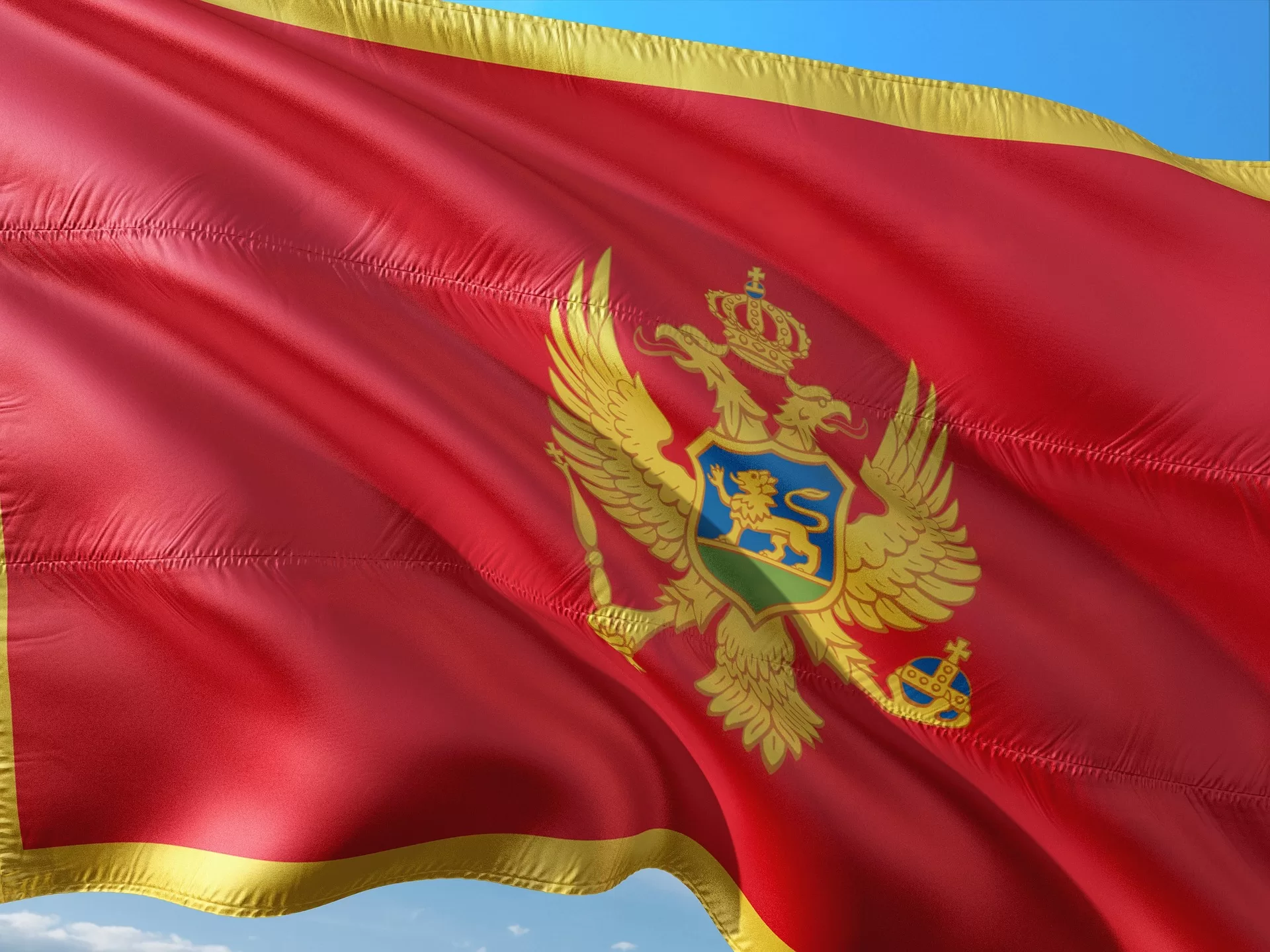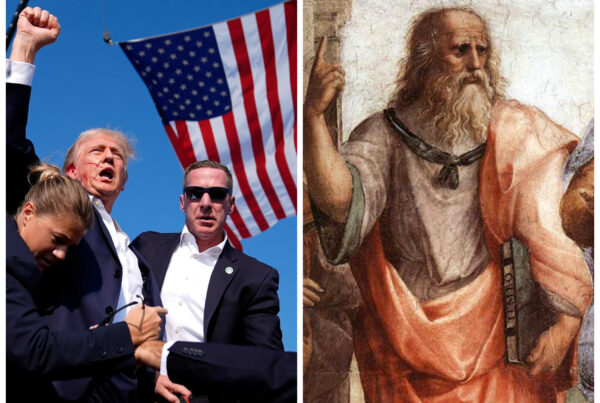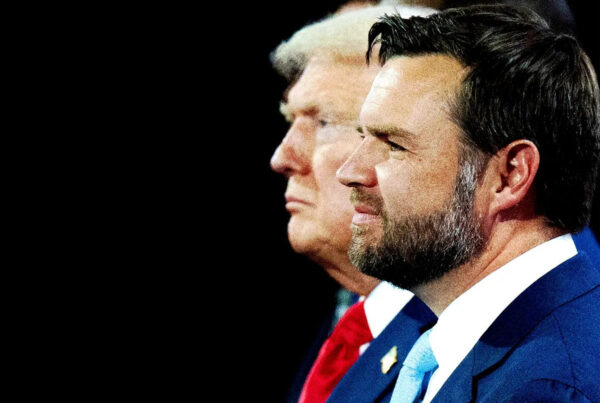On 2 April, the people of Montenegro voted out their leader of over 30 years, Milo Djukanović, head of the Democratic Party of Socialists. The winning candidate and new President of Montenegro, Jakov Milatović, is a young, fresh-faced 36-year-old who represents a heavily pro-EU and liberal party that had only been formed in June 2022, called Europe Now. Following the election results and the news of Djukanović’s downfall, ethnic Serbs around the world and people who identify as ethnic Serbs in Montenegro itself raised the red, blue and white flag of old Montenegro – not the modern national flag – and sang patriotic, pro-Serb songs in celebration of a future without Djukanović and his anti-Serb and pro-Western policies. Many seem to believe that Jakov Milatović will usher in a new era for Montenegro – one that is more pro-Serb in nature and could even set the first paving stones for a path towards a Montenegro that could eventually realign with and even reunite with Serbia itself. Personally, however, I am among those Serbs who do not believe that Milatović will bring forth a better, brighter future for Montenegro and the people of the country, regardless of whether they identify as ethnic Serbs or Montenegrins. If anything, it is my belief that not very much will change at all, and any so-called “improvements” in Montenegro will be symbolic and fleeting at best. In this article, I will outline as to why this is my personal belief, contrary to the reactions of many Serbs in the Balkans and the diaspora across the globe.
Who is Milo Djukanović?
The leader of the Montenegrin Democratic Party of Socialists, Milo Djukanović was Europe’s longest-serving head of state, having served as both president and prime minister of Montenegro for over 33 years before this month’s election. A highly controversial figure not just in Montenegrin politics but in the Western Balkans in general, Djukanović is infamous for having been embroiled in countless controversies and scandals, including – but not limited to – tobacco smuggling, corruption, money laundering, media censorship, anti-protest crackdowns, allegedly promising ethnic Bosniaks regional autonomy within Montenegro and the seizure of property belonging to the Serbian Orthodox Church and transferring them over to state ownership (the parallels between Djukanović and Ukraine’s own Volodymyr Zelensky are becoming increasingly clear). Djukanović is also infamous for his vehemently anti-Serb stance, having been a long-time advocate for the rejection of Montenegro’s Serb heritage and the embracing of a separate Montenegrin ethnic identity. So strong is Djukanović’s anti-Serb rhetoric, he had been a strong lobbyist for Montenegro’s secession from Serbia in 2006, took Montenegro into NATO in 2017 and continues to push for the country’s accession into the European Union. Djukanović also enjoys popular support from ethnic Albanians living in Montenegro and has even recognised the independence of Kosovo. This move in particular led to universal condemnation of Djukanović from Serbs worldwide, as well as from many self-described Montenegrins. Economically, Djukanović had also privatised several public services and companies, selling them off to foreign investors and firms, thus handing over control of domestic industries to foreign capitalist corporations and CEOs. Such economic moves are highly unusual for a political leader who belongs to a party that describes itself as ideologically socialist. Djukanović had also been accused of making membership of his party a prerequisite for starting up businesses and obtaining promotions in government-linked workplaces. Unsurprisingly – and characteristic of most Balkan politicians – there have also been accusations of Djukanović having ties to organised crime.
Milo Djukanović’s vehement anti-Serb rhetoric is especially noteworthy when one takes into consideration that such sentiments have been proven to be significant factors when creating and passing new government policies. In the beginning, it was Montenegrin independence from Serbia, then it was the promotion of a distinct Montenegrin ethnicity, then it was the recognition of Kosovo’s independence from Serbia, then it was the advancement of pro-NATO and pro-EU policies, then it was the promotion of the so-called Montenegrin Orthodox Church and the confiscation of land and property belonging to the recognised Serbian Orthodox Church. Following the Russian invasion of Ukraine in February 2022, the Montenegrin government quickly adopted an anti-Russian stance and implemented sanctions against Russia, which thus led to the Russian government labelling Montenegro as an “unfriendly” country. It is likely that this was a contributing factor to Djukanović’s downfall, due to the high number of people in Montenegro who identify as ethnic Serbs, and who thus strongly support Russia as a historical, traditional ally and brother nation. Just as in the case of Kosovo, even self-described Montenegrins condemned Djukanović’s anti-Russian moves, as Russia continues to be a popular country and culture within Montenegro almost as much as it is in Serbia.
From all of this, one would think that with his downfall in the presidential elections of this month, both Montenegrin citizens and ethnic Serbs worldwide would be fully justified in celebrating Djukanović’s defeat after over 30 years of repressive rule and pro-Western, anti-Serb policies. While they are indeed justified in celebrating his defeat, it is a different matter entirely if they celebrate the victory of his opponent, Jakov Milatović.
Who is Jakov Milatović?
The newly elected president of Montenegro, 36-year-old Jakov Milatović, was celebrated as the man who would soon be taking over the leadership of his country from the tight grip of Milo Djukanović and his corrupt rule. As stated before, following his election victory, Milatović was received with huge marches in support of his victory with the red, blue and white flag of old Montenegro, the singing of patriotic songs celebrating Montenegrin history and national hopes of a brighter future for the Black Mountains. Alas, I personally fear that this will not be the case. Instead, the case will most likely take the form of the same old policies as espoused by Milo Djukanović and his Socialists, with the exception that Milatović and his Europe Now party run on an anti-corruption platform, contrary to the rampant corruption of Djukanović.
But why am I – and some other Serbs and Montenegrin citizens – so sceptical about Jakov Milatović? Why do I not celebrate with the hundreds of thousands of other Serbs by flying the old flag of Montenegro and singing patriotic songs dedicated to the region and its people, once known as the so-called “Serbian Spartans”, due to their history of being a “warrior people”? Is Milatović not the man who beat Milo Djukanović in the presidential elections and has promised to stamp out and erase any and all corruption in Montenegro? Is he not the man who will lead Montenegro into a brighter, more prosperous future, strengthening the country geopolitically in the Balkans, Europe and the wider world? Is he not the new, young and fresh-faced hope for a country that continues to struggle in an increasingly hostile world? Unfortunately, I err on the side of scepticism and say no.
Jakov Milatović previously served as a minister for economic development in government before forming the Europe Now party alongside Finance Minister Milojko Spajić on an economic and anti-corruption platform. Just by looking at other key policies from Europe Now, we can see that Milatović may in fact not be the political messiah, so to speak, that Montenegro and ethnic Serbs have been waiting for. True, while running on a platform that advocates economic stability and anti-corruption laws is no bad thing whatsoever, a different picture emerges when it turns out that Milatović and his Europe Now party are also strongly pro-EU and support social liberalism, aligning themselves with the political centre ideologically.
Other questionable policies of Milatović’s are more evident when his foreign policies are taken into account. Milatović had previously stated that his first state visit as president of Montenegro would be to Brussels, Belgium, in order to enter into further talks with the EU about Montenegro’s accession process into the bloc, thus dragging Montenegro even further into internationalist servitude and economic slavery, alongside their current membership in NATO. Matters are made even more difficult when one realises that Montenegro already uses the euro as its currency, thus already shackling itself to the EU economically before it has even become a member state itself.
During the 2006 Montenegrin independence referendum, Milatović voted in favour of independence from Serbia. However, Milatović has also been an advocate for Montenegro forging closer relations with Serbia, which many have claimed was a sign that he could potentially steer Montenegro back into Serbia’s geopolitical sphere of influence in the Balkans, potentially even paving the way for a long-term plan to eventually reunify Montenegro with Serbia. This is just flat-out wishful thinking. Milatović’s policies and other attitudes towards Serbia indicate nothing of the sort.
To use layman’s terms and “burst the bubble” of the pro-Milatović Serbs and Montenegrin citizens, Milatović has also made several statements which prove that he is in fact not somebody who the Serb people and citizens of Montenegro can rely on any more than Milo Djukanović, despite running on an anti-corruption platform.
Despite the aforementioned pro-Russian sentiment among both ethnic Serbs and self-described Montenegrins, Milatović is in favour of sanctioning Russia due to its invasion of Ukraine. This will undoubtedly alienate the people of Montenegro and ethnic Serbs across the Balkans and the wider world, as the overwhelming majority of these people support Russia, even if they are not necessarily supportive of Russia’s campaign in Ukraine itself. Serbs are very good at separating the actions of the state from the sentiments of the people without discriminating against the respective nation as a whole. Even more controversially, Milatović is against public calls to revoke Montenegro’s recognition of Kosovo, claiming that such a move would be “unrealistic” and that Kosovo is “internationally recognised as an independent state”. Given the fact that Kosovo is recognised by just over half of UN member states, is not a UN member state itself and has little to no meaningful political representation on the world stage whatsoever, Milatović’s claims are completely false and do not justify his refusal to revoke Montenegro’s recognition of Kosovo, which had been declared when Milo Djukanović was still in power. Given the well-known devotion to a Serbian and Orthodox Christian Kosovo that every Serb and even most self-described Montenegrins hold in their hearts, such statements from Milatović will not go down well for his future as president of Montenegro.
Another highly controversial statement from Milatović is that he openly agrees with the International Criminal Court’s declaration that the massacre in Srebrenica during the Bosnian War in the early-to-mid 1990s can be classified as an act of genocide. Srebrenica genocide denial is still very high among Serbs and many self-described Montenegrins, so this statement from Milatović will also not go down particularly well with those who voted for him in the first place.
On a personal level, although Milatović regards himself as a Serbian Orthodox Christian and was baptised in the beautiful and sacred Ostrog Monastery in the mountains of Montenegro, he still considers himself a Montenegrin by ethnicity, which has raised many eyebrows among ethnic Serbs, both inside and outside Montenegro.
A False Idol
As an ethnic Serb myself, I personally do not understand why so many of my own people, both inside and outside of Montenegro, were celebrating Milatović’s victory so much when he will be little different to Milo Djukanović before him. Of course, Milatović’s anti-corruption policies and his likely reversal of the previous regime’s anti-Serbian Orthodox laws are admirable and indeed have mine and others’ support, but his other pro-Western policies and refusal to revoke more of Djukanović’s damaging policies ultimately make me feel that very little will actually change for Montenegro in the future. The government of this tiny country will still try its very hardest to steer itself in an even more pro-Western direction than before, strengthen its ties with NATO and the EU, continue to sanction Russia and refuse to revoke its recognition of Kosovo.
The cons of Milatović’s policies will far outweigh the positives, and, if anything, one would be entirely forgiven for assuming that the main reason for the huge celebrations following Milatović’s electoral victory was not actually because of his win but rather because of Djukanović’s loss. At the risk of giving away my own personal political biases here, had I been a citizen of Montenegro, I personally would have voted for – and would have advised others in Montenegro to vote for – Andrija Mandić, leader of the Democratic Front alliance. The Democratic Front is an alliance of several political parties in Montenegro which are predominantly anti-Western, pro-Russian and promote Serbian nationalism, including the reunification of Montenegro with Serbia. While the Democratic Front did not manage to advance into the second round of voting, they did in fact come third in the first round of voting, and quite comfortably at that. This is encouraging, for it shows that in future elections in Montenegro, there is still a significant chance that Montenegro could reverse its policies and rhetoric since 2006 and abandon its pro-Western path in order to pursue a return to its old pro-Serbian stance. With even more luck and determination from the people of Montenegro, we could even hope to see the reunification of Montenegro with her true father nation of Serbia. In this new, hostile world that has dawned on us at the turn of the decade, anything is possible.










Very informative. As a North American expat living in Serbia, the Serb people are dear to me, and this insight is valuable. Djukanović is a truly evil figure with his origins coming from a somewhat Serb nationalist position and just flipping sides due to a lust for money and power. Milatović’s stance on Kosovo is enough to dismiss him as a joke. Stefan if you should read this comment please consider covering Dodik and the recent issues surrounding Bosnian Serbs!
Thank you for your comment! As someone whose maternal family is of Bosnian Serb origin, I shall indeed consider an article on Milorad Dodik and Republika Srpska!